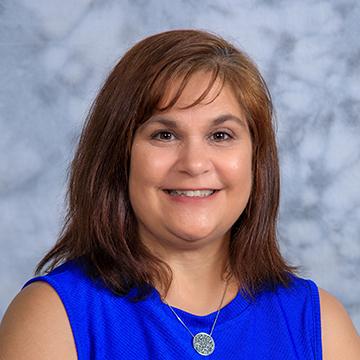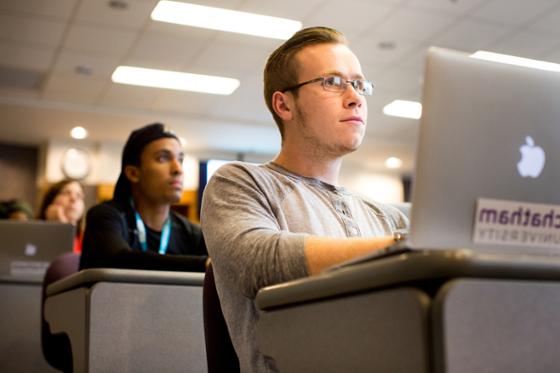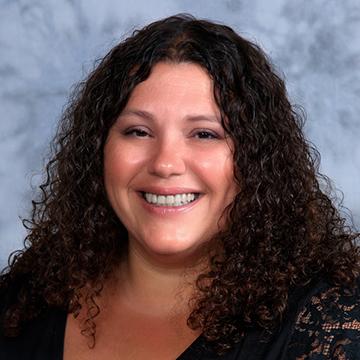
Education
Have questions? We make it easy to get in touch:
Call Us
800-837-1290
Text Us
412-419-3772 (standard text/SMS rates will apply)
Email Us
Request Information
Or, answer a few questions and we will be glad to help.
Education Overview
“We are not just preparing our students for the classroom, we are preparing our students to be conscientious global citizens. Through the lens of the seventeen UN Sustainable Development Goals, students examine the role education can play in making all communities more sustainable and equitable. Our students learn how to reflect on their own belief systems and how they can contribute to the profession. We value faculty who are current in best practices and are able to transmit their experiences to our future teachers.”
– KRISTIN HARTY, Ph.D., program director

What Students Are Saying
"The education I'm receiving at Chatham is going to prepare me for my time as a teacher. We do four tiers of field placements, and we start off our second semester of our first year in schools. So we get an early experience at a school, working with children and in that school environment."—Isabella Vincent, PreK-4 Education Major
Explore the Education Degree:

Certificate in Education
Students interested in becoming secondary school, art, or music teachers major in their content area at Chatham and complete a certificate in education for 45 credits. Options include certification for English, social studies, mathematics, and biology for grades 7-12, and art or music for grades K-12.

Social, Emotional & Behavioral Wellness Program
The Social, Emotional and Behavioral Wellness program focuses on the social-emotional, behavior and wellness of PK-12 students. Completely online, with the exception of a 70-hour practicum completed in an educational setting, the program aims to provide individuals working with youth with the tools and knowledge to create a nurturing, empathetic, supportive, and inclusive environment for students to support their overall development.
Explore the Program : Checkerboard 2 - Social, Emotional & Behavioral Wellness Program
Educational Research Methods
In the Educational Research Methods class, Education majors conduct an action research project for Environmental Charter School (ECS). Chatham students visited the ECS intermediate school, talked with school leaders, then designed a survey to examine how ECS students understand the concepts of equity and sustainability. Results from class analysis of the data were given to ECS school leaders to guide them in their continued work teaching about these concepts.

Our Mission
Chatham’s Education Division partners with students, teachers, and the community in support of transformation for social justice and sustainability. We challenge inequitable educational and other social systems that disenfranchise those with marginalized identities. We are committed to equitable learning and living experiences for all.

Our Vision
The Education Division at Chatham strives to create and be educators and community members who demonstrate care, compassion, and optimism. We understand that learning is a reciprocal and lifelong process. We listen to and tap into the wisdom of youth and communities. We advocate for people with marginalized social identities. We help youth understand the world they live in and challenge them to transform it. We work to form active citizens that create just and ecologically sound communities.



